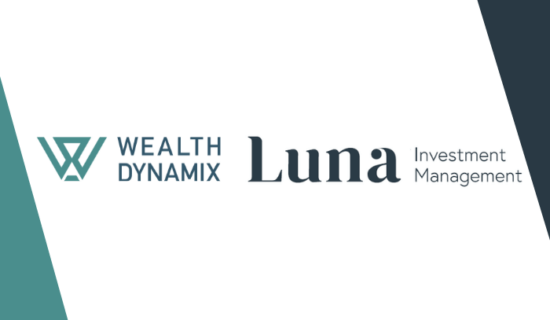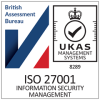“Those who are happiest”, said world-renowned intellect Booker T. Washington, “are those who do the most for others”.
Scattered throughout world philosophies are similar ideas. From proverbs about old men planting trees to today’s chart hits, the message keeps repeating – money doesn’t buy happiness, contributing to a greater purpose does. Perhaps ironically, the place we see this most is in Wealth Management. Since 2018, the money flowing into Environmental, Social and Governance (ESG) funds has increased ten-fold. And in 2021 it’s set to double again. People want to invest in companies that do good. It’s so important that they’d even be willing to sacrifice some returns if they had to.
So how can wealth managers boost client and employee happiness using ESG? And how can they enjoy this $171 trillion market without greenwashing? Our Marketing Director Lucy Heavens recently spoke to technology experts to discover more.
Ditch the old way of thinking
Ever wanted to suss out when an investment manager last went to university or studied up? Try asking whether investments that do good can also do well. The evolution of different responses over the decades is fascinating.
At its origins, some seventy years ago, ESG or “socially responsible” investing, didn’t have much to do with investing. For the most part, portfolios excluded weaponry, gambling, pornography or sometimes alcohol. And perhaps – if the investor was ultra-philanthropic – some proceeds would go to charity. This separation of doing good from doing well held strong for decades. Sadly, some old-school managers still adopt this dinosaur way of thinking.
“Where I see a divide is when it comes to family offices and billionaires”, comments Lou Celi, Chief Executive and Founder of ThoughtLab. “Whether you keep your investment portfolio separate from your corporate altruism or philanthropy … that kind of thinking has to stop and change. I don’t think that’s contemporary thinking anymore”.
Of course, for most people this is clear. Charitable gift-giving has nothing to do with ESG investing. After all, donating money to protect wildlife does nothing when the money comes from oil drilling, deforestation, or plastic pollution. Sustainable investments – by definition – are not just about the planet, they must sustain themselves financially too.
This brings us to the modern way of thinking – which wealth managers must adopt. ESG investments can deliver similar or better financial returns than traditional ones. For some time, managers debated this back and forth like a game of ping pong. But in 2020, the argument was finally put to rest. ESG investments are more resilient against market volatility and offer stronger returns overall.
Accept that investors must do good … and well
This success is partly thanks to the “ESG factor”. Investors love buying and holding what they believe in, and that makes ESG sticky. By contrast, investors can feel cognitive dissonance when they invest in things that they don’t believe in. For example, stocks that damage the planet or hurt future generations of their family. These don’t have the same sticking power, and investors won’t think twice about ditching them if they need to. It’s purely business. Nothing personal.
“This success is partly thanks to the “ESG factor”. Investors love buying and holding what they believe in, and that makes ESG sticky. By contrast, investors can feel cognitive dissonance when they invest in things that they don’t believe in.”
“We’ve seen the rise of purpose over the last few years”, elaborates Olivia Fahy, Head of Culture for TCC Group. “Five or so years ago, it wasn’t really something that was mentioned in the same sentence as financial services. It wasn’t really something on people’s radars. And in the last few years, it’s grown exponentially”.
Another reason behind outperformance of ESG falls on regulators. As scientists issue code-red warnings, governments and supervisors have no choice but to tax heavy carbon emitters and reward sustainable companies.
“There’s a lot changing on the regulatory landscape”, continues Celi. “Some of these trends are more pronounced in different parts of the world. Japan, France, and the US are where we’re seeing the most ESG-driven activity. France is very far ahead with regulations, that can even affect lending rates”.
The EU is a leader in the space. As part of the Green Deal, the Commission hunkered down on financial services to end greenwashing and promote genuine sustainability. And it’s only getting more serious. “We see the EU centralising agencies”, explains Nina Kerkez, Director of Consulting at Lexis Nexis Risk Solutions. “Moving from multiple supervisory agencies to potentially one centralised agency”.
From the EU Taxonomy to the expanding carbon markets, things are going to get expensive for non-sustainable companies, leading to a rise in stranded assets for investors. Clearly, this affects all wealth managers, even those outside Europe. As Celi found in his research. “Because many of the firms […] are international, they’re all affected”, he shares.
Embrace an ESG-aligned culture
Type, “How to tell if a company is greenwashing” into Google and you’ll get five million nine hundred results. Customers are getting smarter. What’s more, less than one in five believed brands’ sustainability claims last year . How can wealth managers avoid unintentionally greenwashing to a hyper-sceptical customer-base?
For Fahry, the answer is clear. “It’s important for firms to be practicing what they preach”, she comments. “It isn’t enough for firms to be making commitments externally and saying these things. They actually need to be following through with it and applying these actions and behaviours within their own organisations”.
This may seem like an obvious first step, but sadly, for many firms it isn’t. Wealth management is still among the very worst for diversity and inclusion levels , showing a lack of engagement with the “S” and “G” in ESG. What’s more, while banks have made bold sustainability claims, many have been caught out for climate hypocrisy– destroying the “E” in ESG . Even the FCA has raised eyebrows at the quality and integrity of ESG investing services . These incidents damage their reputation, and not just in the eyes of the customer, but the employees too.
“Values are more important than we’ve realised. Finding out precisely what clients believe in is key to delivering exceptional service – which wealth managers can justify charging more for.”
“Reputationally, that focus on the behaviours you’re driving throughout the organisation is really important”, Fahry elaborates. “If you want to create an organisation that is healthy, you need to create the environment and culture that allows those sorts of healthy behaviours to thrive”.
On the flip side, research from McKinsey found ESG can play an essential role in nurturing employee happiness. “A strong ESG proposition can help attract and retain quality employees, enhance employee motivation by instilling a sense of purpose and increase productivity overall”, the paper reads.
Values are more important than we’ve realised. Finding out precisely what clients believe in is key to delivering exceptional service – which wealth managers can justify charging more for.
Data is the best way to offer bespoke ESG solutions
Everyone has a different version of ethical investing. Or, as Celi puts it, “There’s not one single purpose. It varies from person to person”. To make clients truly happy, and offer them a portfolio that sticks, wealth managers must find out what their client’s unique purpose is.
“If you’re a good wealth manager”, elaborates Celi, “you need to know what [your client] cares most about”. From there, you can build an investment solution which makes them happy.
To do this, of course, wealth managers need data. Compiling all this data – from recorded meetings to client notes – into meaningful insights can only be done at scale with technology. And with the right client lifecycle management solution, the burdensome regulations and checks become painlessly completed too. This, all the experts found, was the only truly manageable way to meet the exacting standards required for ESG investing.
“Firms are going to be increasing the digitalisation of compliance, to cope with regulatory complexity”, explained Celi. “58% are planning to digitise, automate, integrate compliance controls. A mixture of technology and humans is needed to get the job done”. What’s clear is that humans have an essential role to play, not just in bolstering client happiness but also saving the planet. There are humans behind everything. It’s a hybrid approach. We need super technology, but at the epicentre is the human. Technology training and human interpretation is vital.
Wealth Managers have a sense of purpose like no other
The OECD found that we need to be investing $6.9 trillion each year from now until 2030 to stand any chance of reaching our net-zero goals . More than the entire GDP of the UK.
The widescale adoption of Compliance and ESG technology – as well as the human training – cannot come soon enough. Financial services have a heavy burden to carry. But, as we can learn from great philosophers old and new, nothing could help them get through it better than this strong sense of purpose.
READ OUR INSIGHTS
17 April 2024
Achieving profitability at scale: the potential for AI
We delve into the use of AI technology in wealth management. Far from belonging to a far-distant future, it is here and growing more intelligent by the day.
5 min. read
2 April 2024
Empowering client-facing relationship managers and advisors: Perspectives from Wealth Dynamix’s APAC head
Hubbis recently hosted a digital dialogue focusing on the application of the latest digital solutions for the Relationship Managers and advisory in the world of Asian wealth management, as technology revolutionises the offerings and efficiencies across the broad wealth management community in the region.
5 min. read
19 March 2024
Navigating the challenges of scaling through technology
Avoid buyer’s remorse with an upfront analysis of the challenges of modernising your technology stack for greater scalability. Join us as we unpack the issues and give you some pointers.
5 min. read






